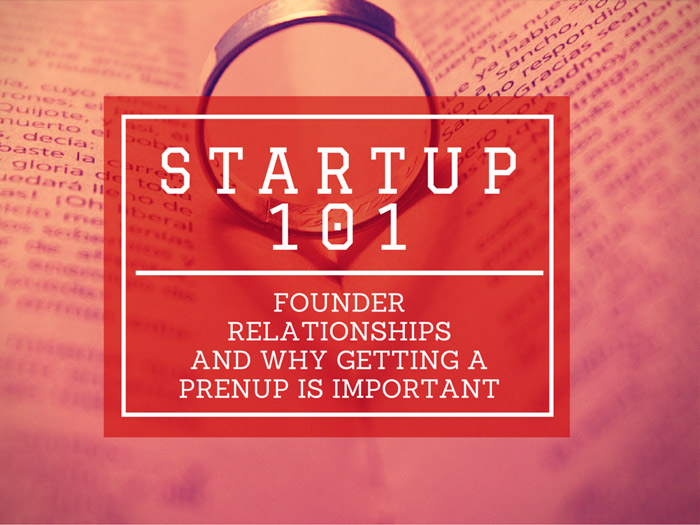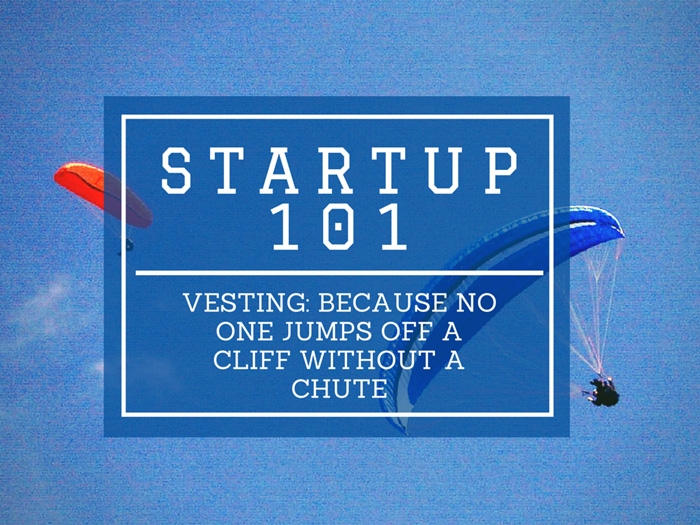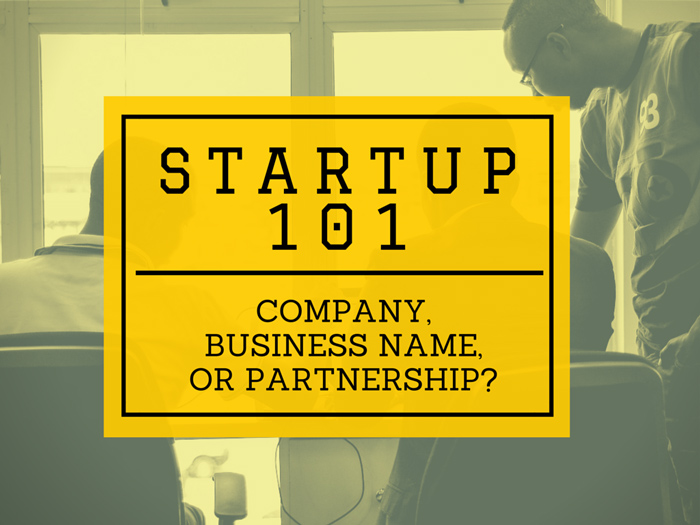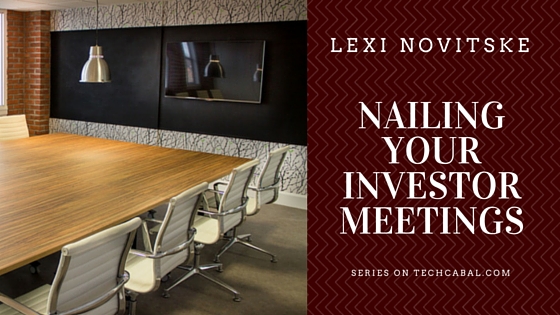This article is part of the Startup 101: A Legal Perspective series, guest-written by Odun Longe, a startup lawyer at The Longe Practice. Click here to see all the posts in the 8-part series.
Finally, it gets more exciting. Less boring legal stuff and more practical things you can relate with as a founder.
Storytime!
Tina had this great idea that was going to take the Lagos startup scene by storm. Initially, she worked on her idea nights and weekends, when she was not working at her job as an IT Analyst at a top indigenous oil company.
Being a tech person without marketing experience and realising she was unable to devote enough time to the project, she involved Tom, a former secondary school love who used to work with a top advertising agency prior to his return to Nigeria. Since his return to Nigeria, Tom had been unable to get a job that matched his skills and paid him as well as he was paid when he worked in the UK, so he was glad to get on board with Tina and leverage his marketing skills for the startup.
When Tom joined, he told Tina he had been thinking of an idea along similar lines, but just lacked the technical skills so he committed to devoting himself to the startup entirely and for the long-term. He didn’t think he would be a good fit for the Nigerian workplace anyway.
They were Tina was able to develop their MVP within a short period. Tom was able to generate some interest for the product from potential customers, he was the brain behind the product branding and trademark. They set up a company with both of them as equal shareholders. The startup successfully launched its product in beta and things were looking up. Tina turned in her resignation at work and was excited to go join Tom so they could both devote all their time to selling their product, and who knows, maybe rekindle old flames ;).
Anyway, a few days later, Tom got an offer he couldn’t refuse from a Nigerian conglomerate owned by one of the richest men in Nigeria and he had to resume immediately starting with a month’s training in China. He sent Tina an email to let her know of this recent development leaving her stranded but still holding 50% of shares in the company and ownership rights to the trademark.
***
Tina and Tom’s story form the backdrop to the next three posts in this series.
It is no exaggeration when a founders relationship is likened to a marriage and as it is with marriages, it is important you get it right. I dare say choosing a co-founder is the most important decision you would ever make as a startup founder. Just like in a bad marriage, you can bet that your emotions, physical health, finances and even spiritual life would be affected if you are in a bad founders relationship. However, unlike in a marriage, where there’s often a dating or courtship period, you don’t always have that luxury of time in a founders’ relationship. (It is advisable to “court/date” your prospective founder where possible though).
Just as a prenuptial agreement is sometimes entered into to protect a party or both parties in a marriage, I would recommend that founders always, always, always, always, always enter into a Founders’ Agreement, even when it is someone you have known forever. Contrary to the general opinion that a Founders’ Agreement is unnecessary when you’ve known your co-founder a long time (even prior to partnering up), I am of the school of thought that this is actually when it is even more essential. To protect the existing (or new) relationship, it is best that all roles, obligations and benefits are clearly defined, with grey areas reduced to the barest minimum. This way, the founders are able to mitigate likely causes of conflict in the future, and in the event conflict does arise, the Founders Agreement would have addressed the manner by which such conflict would be resolved.
When initial discussions start between co-founders, a handshake verbal agreement may be okay. (A verbal agreement is enforceable in court where all the valid parts of a contract can be established). Along the line both founders may do a paper napkin letter or email agreement which shows progress, it’s an improvement on the verbal but can be much better. However, at that point where things begin to take shape – setting up a legal structure, producing your MVP or launching beta, by all means, I beseech beg you earnestly, enter into a Founder’s Agreement!
So back to Tina and Tom. Upon both of them agreeing to work together, first thing Tina should have done was obtained a written understanding (email/letter) with Tom. At the very latest, at the point they hired a lawyer to incorporate their company, they should have gotten a lawyer to write them a Founders Agreement.
I’m sure you are probably wondering how a Founder’s Agreement could have salvaged this situation for Tina, well this brings me to the content of a Founders Agreement.
A well drafted Founder’s Agreement would contain some basic clauses which include capitalization, Decision Making, IP Assignment, Vesting, Confidentiality, Non-Circumvention, Roles & Responsibilities, Distributions, Exit and Dispute Resolution. Other clauses specific to each founders’ relationship should also be included.
On Tom leaving with 50% of the company, vesting would have sorted that out — more on vesting in the next post.
On trademark rights, an IP Assignment clause would have been the antidote to that, the post after the post after this by my Co-founder, Funkola is going to address intellectual property issues, you should watch out for that!
The other clauses I have highlighted play various functions in managing a founders’ relationship and are all very important.
Now is Tina able to still save the day, i.e., have Tom give up his shares and IP rights to the Trademark? Absolutely! That is why we lawyers exist. However, in the likely event that Tom is uncooperative, this could end up being a complex and painful process that could have been avoided.
So dear friends, the cliché “prevention is better than cure” , is truth and life to any founders’ relationship and remains as valid now as it then was.
Legally yours,
Odun
Disclaimer
Articles do not constitute legal advice, neither has a lawyer-client relationship been created by engagement in the comment section. If you require professional legal advice, kindly contact your legal adviser.
Read next: Co-founding a startup is like getting married.
Photo Credit: GViciano via Compfight cc





















